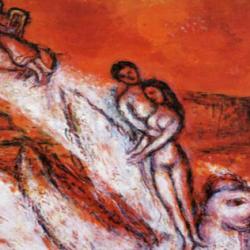INTRODUCTION
Solomon ends Ecclesiastes where he began, by emphasizing our lack of control (11:5) and the brevity of life (12:1-8). Wisdom means adjusting our actions and expectations to these realities.
THE TEXT
“Cast your bread upon the waters, for you will find it after many days. Give a serving to seven, and also to eight, for you do not know what evil will be on the earth. If the clouds are full of rain, they empty themselves upon the earth; and if a tree falls to the south or the north, in the place where the tree falls, there it shall lie . . . .” (Ecclesiastes 11:1-12:14).
BREAD ON THE WATERS
Our lives are punctuated by trouble and darkness (11:2, 8), and ultimately our lives will end with death (12:1-7). Worse, we never know when misfortune might strike (11:2), nor do we know which of our projects will succeed and which will fail (11:6). In the face of this uncertainty, we should send out bread on the waters (11:1). This is an image of generosity; like Jesus, Solomon tells us that our generosity will turn around to benefit us in the end (Luke 6:30, 38; cf. 2 Corinthians 9:6-10). It is also an image that describes a certain careless freedom with our possessions and our talents. Whether in work or in charity, we should not hoard our gifts but spread them out and see what comes of it.
Verse 2 is a similar exhortation to generosity, though it also implies the wisdom of not “putting all our eggs in one basket.” We cannot predict the best time for sowing or reaping (v. 4), and we shouldn’t be fooled by the promise that we can somehow “beat the system.” We must simply act and labor with diligence (11:6), trusting the Giving God will make our labor and generosity productive. We should especially beware of the selfish “caution” that keeps us from expending ourselves and our resources.
YOUTH
Solomon has specific advice for young people (12:1-8). His assumption, again, is that life is brief. Human beings are microcosms, and Solomon describes human death as an unraveling of a world. Someday the sun, moon, and stars of our lives will fall to the earth (v. 2). Death is like a national disaster when men and women, the powerful and the slaves, retreat into the house and stop their work (v. 3).
Knowing that death is coming, and coming sooner than we expect, young people should rejoice, work, and follow the ways of your heart and the desires of your eyes (11:9). Solomon is not urging young people to live sinfully. He reminds the young man that “God will bring you to judgment for all these things” (11:9), and urges us to “remember also your Creator in the days of your youth” (12:1). But he does urge the young to take advantage of the opportunities they have. Don’t waste your youth waiting to start life; start living now.















